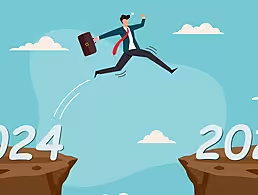How has the pandemic affected the graduate job market? Which skills will we need to prioritise moving forward? These are some of the things we looked at in Careers this week.
Whether you’re an experienced professional or a graduate taking your first steps into the working world, it’s hard to deny that Covid-19 has changed things.
This week in Careers, we looked at some of the trends you can expect to see now and going forward.
1. Graduates are still in demand
There was some positive news for graduates. A new report from the Association of Higher Education Careers Services (AHECS) suggested that despite the economic impacts of the pandemic, many sectors are still interested in and planning to take on graduate hires.
According to AHECS, Ireland’s eastern counties have the highest percentage of graduate opportunities at the moment, followed by the country’s border and south-west regions.
Among those hiring is Johnson & Johnson. To learn more about the company’s graduate programme, we spoke to its early-talent recruitment lead for the UK and Ireland, Ross Parsons. People who take part in the programme can expect to build on their soft and technical skills, he explained.
2. Companies are still hiring
Jobs for more senior roles were announced this week, too. Functional safety company Exida announced that it will be rolling out 25 new jobs in Shannon over the next five years. Tánaiste and Minister for Enterprise, Trade and Employment Leo Varadkar, TD, said the positions will be “highly skilled”. New recruits will help the company expand its software development capability and resource EU projects.
Also planning to hire is gaming company Activision Blizzard. It reported better-than-expected Q3 earnings this week, and now looks set to move ahead with plans to hire for 2,000 new roles. The company currently has many job vacancies at its Dublin base, including software engineers, UI software developers, language specialists, QA testers, Python developers and full-stack engineers.
3. Soft skills are key
While the post-Covid world will need plenty of professionals with the right technical expertise, soft skills will also be essential. According to Hays’ Nick Deligiannis, now is the time to “position and prepare yourself as best as possible” for the new era of work.
Deligiannis recommended focusing on six soft skills in particular, including your adaptability to change, the attitude you take to upskilling, your emotional intelligence and how effectively you communicate.
4. How we work is changing
It won’t come as news that the ways we carry out our work are likely going to change. But aside from the obvious shift to remote working, what can we expect? Stoke Talent’s Shahar Erez believes more people may turn to freelancing.
He predicted that as our work becomes more flexible, opportunities will grow for people who can build a portfolio of employers and projects, a network for themselves and who are used to being onboarded quickly.
On a broader scale, how companies operate will likely change, too. A new report from Robert Walters suggested a “hub and spoke” working model could be on the cards for many businesses in Ireland. This would see organisations establish small hubs in city centres and rural working spaces in other areas to allow employees to work nearer their homes.
The latest tech company to announce a permanent hybrid working policy is Reddit. Earlier this week, the company said that employees will be allowed to work remotely, in the office or a mixture of both going forward. It also confirmed that employees’ salaries will not be cut if they move away from a high-cost Reddit office location.
And, of course, we’ll still have lots of work on diversity and inclusion to do going forward. Mastercard’s senior vice-president of enterprise architecture, Olivia Leonard, spoke to us about making STEM a more welcoming place for women. Leonard has had a great career in the technology sector and wants others to experience that too.
5. We’re learning in new ways
How we learn is also going to change. As many businesses have had to pivot their training efforts online recently, some might engage with game-based learning, for example. Ruben Hamilius, the founder of Business Games Ireland, has plenty of experience in guiding companies through the process.
Hamilius believes that games can help people retain information and become “active participants” in their own learning. Read his interview here.
Want stories like this and more direct to your inbox? Sign up for Tech Trends, Silicon Republic’s weekly digest of need-to-know tech news.




